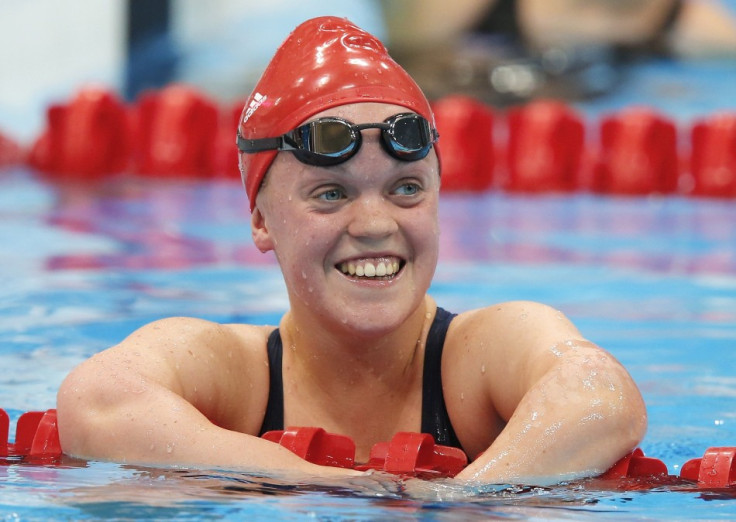Brazil has failed as Olympics host if disabled athletes are forgotten
Only 12% of tickets for the Paralympics have been sold and many countries are not taking part.

Team GB may have enjoyed a record medal haul at the Rio Olympics, including 27 golds among 67 podium finishes, but the congratulatory fanfare over Rio 2016 is premature. Our Paralympic athletes, who are equally as inspiring and talent-worthy, face a games undervalued in every sense of the word.
Financial mismanagement means that next month's Paralympic spectacle will be "significantly downgraded" with venues being closed and services cut. Only 12% of tickets have been sold.
This is clearly not acceptable. For the sake of both Paralympic sport and the Olympic movement as a whole, Paralympians must boycott these games. This may sound extreme, but when even the International Paralympic Committee's (IPC) president, Sir Philip Craven, cannot find a positive spin, admitting "never before in the 56-year history of the Paralympic Games have we faced circumstances like this," needs must. The show must go on, so the adage goes, but not if there is no stage upon which to perform.
This is even more necessary because the Paralympic movement is at a critical juncture, as is the spectre of disability as a whole. A sharp chasm is opening up.
On the one hand, the London 2012 Paralympics set a new benchmark for Paralympic sport and the social acceptance of disability. Athletes such as Jonnie Peacock, David Weir and Ellie Simmonds entered the games Paralympic athletes and finished standing alongside their Olympic counterparts as icons of British sport. The wider public also got involved in record numbers: ticket sales reached unprecedented levels, and the games reached a cumulated international audience of 3.4 billion - up 37% on the Beijing Games in 2008.
London 2012 proved what disabled people could do. Given the proper resources and investment, the world saw for the first time that Paralympic athletes could achieve just as fantastically as Olympic athletes – often going above and beyond. The official Paralympic broadcaster, Channel 4, ran an extensive advertising campaign with tagline "superhuman" to promote the games, and, when China's Zheng Tao won the Men's 100m Backstroke in world record time – despite having no arms – people began to believe it.
At the same time however, austerity measures have threatened the independence and life opportunities that allow disabled people to reach their full potential. In the UK alone, statistics show disabled people are being hit 19 times harder by welfare cuts than able-bodied citizens. And yet, as bad as this may be, the UK remains streets ahead of the base level support offered to disabled people throughout South America.
This is particularly true of Brazil in 2016. Welfare state? Most citizens in Rio are happy to finally have some sort of order under acting Brazilian president, Michael Temer, following the corruption scandal that has engulfed the country. All this before we get to the Zika virus and looming economic meltdown. Bluntly, the integration of disabled people is not high on the priority list.
As a disabled person myself, I happen to be living with a South American carer this year. As he puts it, "the Paralympics are a curious sideshow, but far from a main event – the World Cup and 'traditional' Olympics were the main goals to achieve." This is also reflected in the home nation's apathy to the event.
Problems aplenty, then, but these wider struggles do not absolve Brazil of responsibility. Far from it, the Paralympic fiasco acts as a microcosm of the problems within the country. Corruption and misuse of money? You bet. Reports suggest money earmarked for the Paralympics was instead re-funelled to cover holes in the Olympic budget.
Joined-up thinking and preparation is nowhere to be found. Brazil's Organising Committee are now reportedly relying on a government grant of approximately $79m (£60m) to plug the hole. As one IPC spokesperson told The Independent "We're looking at seeing how we can bring in extra sponsors now, but the fact is the Organising Committee has had seven years to bring in sponsors for the Paralympic Games."
By neglecting Paralympic sport, Brazil has also failed as hosts to the Olympic spirit.
If Paralympians attend the games under these circumstances and in this context, they risk legitimising the degradation of Paralympic sport, and in turn, the progress made in attitudes to disability, just as both have hit the mainstream over the past decade. In the words of Ian Laker – a key figure in GB wheelchair basketball as a player, coach and ambassador for over 20 years – the situation in Rio is a major threat.
"I am disappointed that this has arisen at such a late stage. We had issues in the 90s with Paralympics and since then it has been run so seamlessly and smoothly. The lateness of this causes more issues then the lack of money as early notice at least gives you a chance," says Laker.
By neglecting Paralympic sport, Brazil has also failed as hosts to the Olympic spirit. The Paralympics are not secondary, rather the embodiment of the idea that hard work, dedication and belief can help overcome barriers.
Champion athletes play to win and never settle for second best in their sport. For Paralympic athletes, the challenges of disability mean they must translate this ethos into their whole life – getting to the Paralympics demands that you not only meet expectations but exceed them.
Too often in wider society disabled people still accept second best. The Olympic spirit demands only the best in application – why should Paralympians accept lower standards for what is supposed to be the pinnacle of their careers?
Alex Taylor is a freelance journalist who writes about social affairs, entertainment and disability. He has been published in the Telegraph, The Guardian, New Statesman and Independent among others.
© Copyright IBTimes 2024. All rights reserved.






